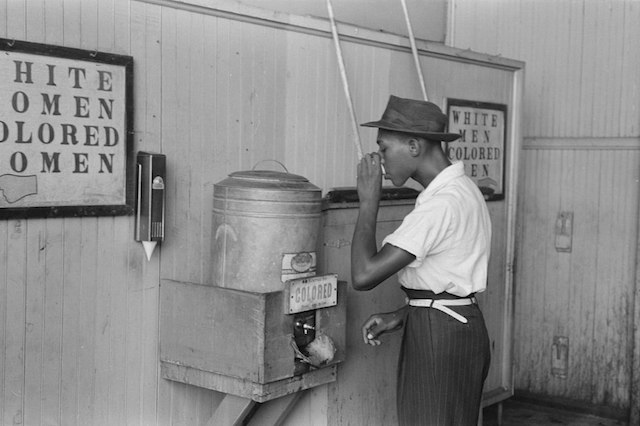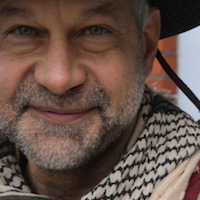
Racism:
Prejudice, discrimination, or antagonism directed against someone of a different race based on the belief that one’s own race is superior. ~ Oxford Dictionary
Prejudice:
Preconceived opinion that is not based on reason or actual experience. ~ Oxford Dictionary
~
I was raised with shades of racism, or at least, not always a clear message.
My mother found it important to indoctrinate us into the Christian faith. We were taught to love and accept everybody.
My father was a tough Sicilian kid raised in New York City. My parents left the city for a bucolic small town before I was born, where my dad became a police officer and eventually, a county detective; life was black and white for him.
I landed somewhere in the middle. Becoming unbiased has taken a good deal of my life.
Growing up, my small town didn’t have a lot of racial diversity. In a cluster of five nearby towns, three had one small black community each and one also had an Indian reservation. In my grade in high school, I think only about 10 percent of the kids were black—the dominant skin color being white. There was one Chinese kid a grade under me, and that was the extent of the racial diversity.
In school, there was a palpable separation between blacks and whites. As a (Caucasian) boy, my takeaway was that the black kids were often more aggressive, and so I was cautious when interacting with them. There were always kids of either color that walked easily on both sides and, in later years, they were the ones that were able to broker peace when racial tensions erupted into fights.
As a teenager, I tried to hold no prejudices, yet I was not as comfortable around black kids as I was around white kids. Some of that I would chalk up to being a typical adolescent looking to fit in with who I felt the most comfortable with, and I’m sure that went both ways.
Once, when I was in seventh or eighth grade, I was “ripped off” by one of the “cool” black kids who I trusted, and I began to harbor subtly racist feelings.
I joined the Navy after graduating high school. In boot camp, my bunk-mate was a black man from Chicago; Michael was his name. We became like brothers, but I still held an edge with the other “brothers.”
We regularly convened in a bare, windowless, cinder block room, where Michael and I and the other young black men would have bare-knuckled sparring matches. I was the only white kid who dared enter. Mike and I were on par, no one could best either of us in bare-knuckle fighting. While we had become close, the other guys kept their distance; I’m pretty sure the fact that I was from New York and would go in there alone intimidated them—and I could fight. Ironically, that same intimidation that kept me at a distance while in school, kept this group of people at a distance then. I’d merely reversed roles.
I was also exposed for the first time to all manner of racial and regional diversity. Together we suffered the indignities of boot camp. Together we suffered the same longing for home and the confusion that accompanied the realities of boot camp treatment designed to erase one’s identity and to form a unified team.
One night after boot camp and before “shipping out,” seven friends from the base and I—all white skinned—ended up playing pool in a Chicago bar with two old black men. It was primarily a black man’s bar and, upon entering, we were eyed warily. One of the guys we met was named Washington, and while he was inebriated when we got there, we shot pool and drank for hours.
The alcohol and enjoyment of the game blurred any differences between us. Afterward, they drove us back to the base and while saying our goodbyes, Washington said, “I’m 62 years old and I never had such a good time with white boys in all my life.” I never forgot the feeling of that compliment. Raised in Chicago in the early 1900s, perhaps they hadn’t had great experiences with white people. We played and drank that night like old friends reunited. Being with those two old men and feeling accepted took a few bricks out of the wall of my old beliefs.
My duty took me to a ship where I met “Fast-Eddie,” a black guy in my division who was an all-around great guy. He was smart and respected and was one who could move between races and was accepted by both. While on watch in the ship’s engine room, there was an issue between two guys, one black, one white.
While it wasn’t initiated by race, it became racial. Each race rallied behind their guy and it quickly got out of hand. Eddie went back and forth between the groups and brokered a peace. What did he have that others didn’t? He had the wisdom and ability to understand and accept both “sides’” point-of-view without judgment. He took race out of the equation. He got to the root of the issue and extracted apologies and a handshake from the two who were the initial cause of the disagreement. Eddie’s wisdom and poise in the face of racial tension left a big impression on me. The way he took race out of the picture helped take a few more bricks out of my wall.
Moving forward 35 years, I have two grandchildren, one of whom is half black. I can’t speak for others, but the presence of bias because of the color of his skin just doesn’t exist for me. I adore him. He is a most lovable boy. He freely gives hugs and is oblivious to racial difference. It pains me deeply to think that one day someone will use a racial epithet or harbor prejudice toward that beautiful boy solely based on his skin color. Am I different than any other parent or grandparent? I think not. My grandson wasn’t born knowing perceived differences in races. That comes later. But does it have to?
Having a dark-skinned grandson has opened my eyes to understanding that the difference between races is what we learn and are taught. We are born neutral. While we may be raised in different ways, no single way is correct. Most of us simply desire the freedom to live our lives and love our families and friends. Imagine a world where we accept, without bias, the differences of others and don’t view them as a threat to our being based on what they look like or what traditions they uphold.
Legitimate threats to our safety can and do exist and must be mitigated accordingly, but discerning the true difference is key, rather than blind prejudice.
According to geneticist Spencer Wells, the DNA of the human population is all tied to the continent of Africa. After migrating, we populated different areas and claimed them as our own. We evolved into separate cultures and ethnicities and skin colors. We’ve evolved into having different languages, religious/spiritual beliefs, cultural guidelines, and dogmas. First and foremost, we are human.
We are now coming into an era where populations are no longer contained within the same geographical borders as they once were and many are feeling the stress of reintegrating. While many wish to maintain their cultural identity, we all share the same DNA. As humans, we can choose to honor and respect the culture and traditions of others and still maintain our own.
I know it’s not always that simple. There are leaders and cultures that routinely mistreat, often violently, and subjugate those whom they can. But in the day to day, we can reach out and get to know each other.
While technically “Caucasian,” my bloodline is Sicilian, Lakota, with a smattering of English and German…through Africa apparently. I love and honor my heritage, but not at the exclusion of another’s.
Having my grandson has brought me full circle. I have been afforded a glimpse at the other side of racism and into the lives of others in a way that I’d not been able to see before. I understand what it’s like to have someone I love deeply, who will likely experience prejudice, knowing what a beautiful soul he is and how undeserving he is of any ill will.
Differences, seen as such, just give us a little flavor.
I have found that when I smile at a person first, they usually smile back.
Smile first.
We are all human.
~
~
~
Author: James Intermaggio
Image: Flickr/The Library of Congress
Editor: Travis May






Read 1 comment and reply